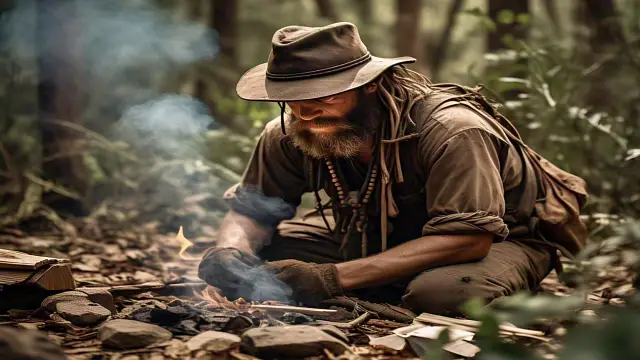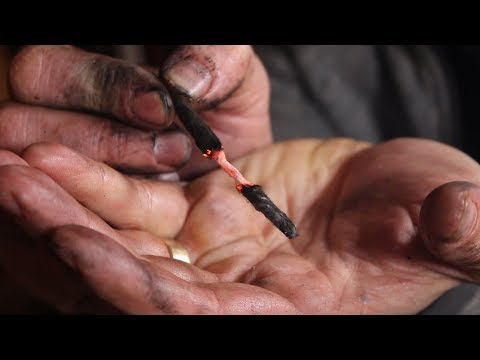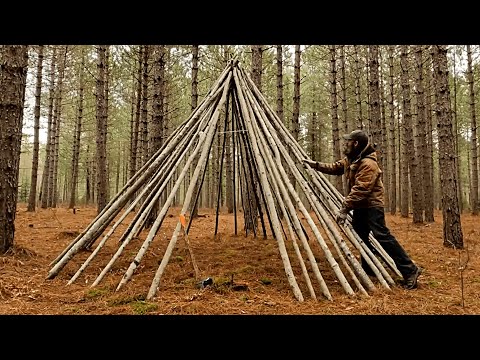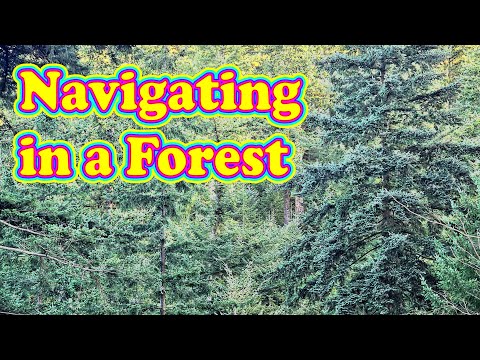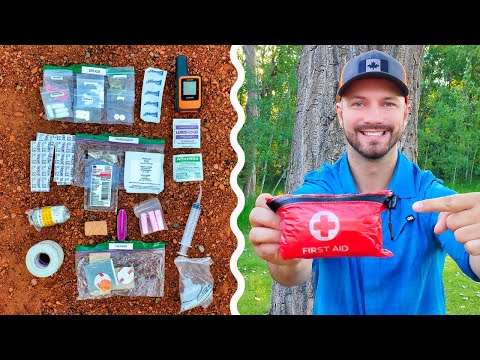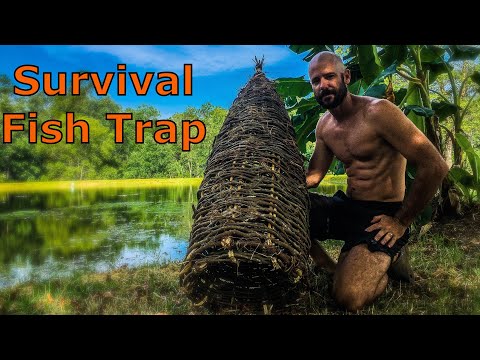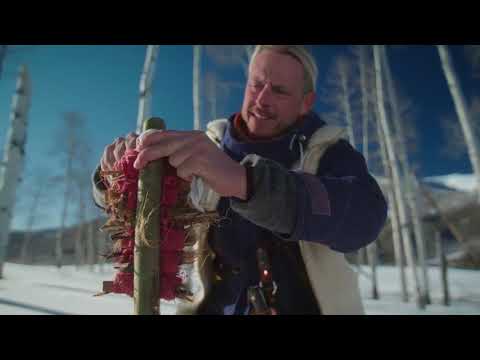Let’s face it—modern life has made us soft. We rely on technology for almost everything: GPS to find our way, microwaves to heat food, and apps to tell us the weather. But what happens when the power goes out, your phone dies, or you find yourself stranded without modern conveniences? Would you know how to survive?
As someone who’s spent years exploring the Australian bush and learning from seasoned outdoorsmen, I’ve come to appreciate just how valuable forgotten survival skills can be. These aren’t just tricks for camping trips—they’re essential tools that could save your life in an emergency. So, let’s dive into 10 forgotten survival skills that every Aussie should consider mastering.
1. Starting a Fire Without Matches
You’ve probably seen people rub sticks together in movies to start fires—but does it actually work? The short answer is yes, but it’s harder than it looks.
There are several methods to ignite a fire without matches: friction (like bow drills), flint and steel, or even using a magnifying glass to focus sunlight. Personally, I once got caught in a downpour while hiking near the Blue Mountains. My lighter was soaked, but luckily, I had packed a small ferro rod (a metal alloy used to create sparks). It saved me from a cold night.
Why is this important? Fire provides warmth, cooks food, purifies water, and keeps predators at bay. If you don’t already own a ferro rod, grab one—they’re cheap, reliable, and last forever.
2. Finding and Purifying Water
Did you know humans can only survive about three days without water? In Australia, where droughts are common, knowing how to locate and purify water is crucial.
Start by looking for signs of moisture: green vegetation, animal tracks leading downhill, or birds flying low over valleys. Once you find water, don’t drink it straight away—it might contain harmful bacteria or parasites. Boiling is the safest method, but if you can’t do that, portable filters or purification tablets are excellent alternatives.
A few years back, during a camping trip in the Outback, I stumbled upon a muddy puddle. Gross, right? But after filtering it through my shirt and boiling it, I had clean drinking water. Trust me, it tasted better than any bottled water ever could!
3. Building a Shelter
If you’re stuck outdoors overnight, shelter is your top priority. Hypothermia can set in quickly, especially in cooler climates like Tasmania or Victoria.
Natural materials like branches, leaves, and bark can make surprisingly effective shelters. A simple lean-to structure can shield you from wind and rain. For extra insulation, pile up dry grass or leaves inside.
I remember building a makeshift shelter during a storm in Queensland. It wasn’t pretty, but it kept me dry and safe until morning. Practice makes perfect—try constructing a shelter next time you’re camping. You’ll thank yourself later.
4. Navigating Without GPS
Before smartphones, people navigated using the stars, sun, and landmarks. While GPS devices are convenient, they’re useless without power.
Learn to read a map and compass—it’s not as hard as it sounds! For instance, moss tends to grow on the southern side of trees in the Southern Hemisphere, which can help orient you. At night, the Southern Cross constellation points toward the South Pole.
Once, while exploring the Daintree Rainforest, my GPS device malfunctioned. Thanks to basic navigation skills, I managed to find my way back to camp. It was a humbling reminder of how dependent we’ve become on gadgets.
5. Identifying Edible Plants
Foraging isn’t just for hippies—it’s a legitimate survival skill. Many native Australian plants are edible, including wattle seeds, lemon myrtle, and samphire. However, misidentifying plants can be dangerous, so always double-check before eating anything.
Take the time to learn about local flora. Carry a field guide or download an app with offline access. Better yet, join a local bushcraft group—they often host workshops on wild edibles.
On a recent hike in the Grampians, I snacked on some wild raspberries I found along the trail. Not only did they taste amazing, but they also gave me energy to keep going.
6. First Aid Basics
Medical emergencies happen when you least expect them. Knowing first aid could mean the difference between life and death.
At minimum, carry a basic first aid kit with bandages, antiseptic wipes, and painkillers. Learn how to treat cuts, sprains, burns, and snake bites. Snakes are more common in rural areas, so understanding pressure immobilisation techniques is vital.
Years ago, a friend of mine was bitten by a red-bellied black snake. Quick thinking and proper first aid prevented serious complications. Moral of the story? Always be prepared.
7. Fishing and Trapping
Fishing isn’t just a relaxing pastime—it’s a survival skill. With a bit of string, a hook, and some bait, you can catch dinner.
Trapping small animals like rabbits or possums requires patience and practice. Snares and deadfall traps are simple yet effective methods. Just ensure you follow local regulations and respect wildlife.
During a fishing trip off the coast of Western Australia, I learned how to spearfish. It was challenging, but landing my first fish felt incredibly rewarding. Plus, fresh seafood beats instant noodles any day!
8. Signal Fires and SOS Techniques
If you’re lost, attracting attention is key. Signal fires are visible from miles away, especially if you add green leaves to create smoke.
Other signalling methods include mirrors, whistles, or arranging rocks in patterns visible from above. Modern search-and-rescue teams use drones, so bright colours stand out best.
Ever tried starting a signal fire? It’s trickier than it seems, but worth practising. After all, you never know when you’ll need to call for help.
9. Mental Resilience
Survival isn’t just physical—it’s mental too. Panic leads to poor decisions, while staying calm boosts your chances of making it through.
Practice mindfulness techniques like deep breathing or visualisation. Remind yourself that most crises are temporary. Stay focused on immediate goals, like finding water or building shelter.
When I got lost in the bush once, I reminded myself to take things step by step. Instead of freaking out, I concentrated on each task, which helped me stay level-headed.
10. Bartering and Community Skills
In extreme situations, teamwork matters. Learning how to barter goods or services can build alliances and improve your odds of survival.
This doesn’t just apply to apocalyptic scenarios—even everyday disasters like floods or bushfires require community cooperation. Share resources, offer help, and foster goodwill.
After the Black Summer bushfires, I saw communities come together in inspiring ways. Neighbours shared food, tools, and support, proving that resilience is contagious.
Final Thoughts
While these skills may seem outdated in our tech-driven world, they’re timeless tools for self-reliance. Whether you’re preparing for natural disasters, planning a remote adventure, or simply want to feel more confident outdoors, mastering these abilities will serve you well.
So, why not give it a go? Grab a friend, head to the nearest national park, and try your hand at starting a fire or navigating without GPS. Who knows—you might discover a new passion along the way.
Remember, being prepared isn’t paranoia; it’s peace of mind. And trust me, there’s no better feeling than knowing you’ve got what it takes to handle whatever life throws your way.
What’s the first skill you’d like to learn? Let me know in the comments below—I’d love to hear your thoughts!

